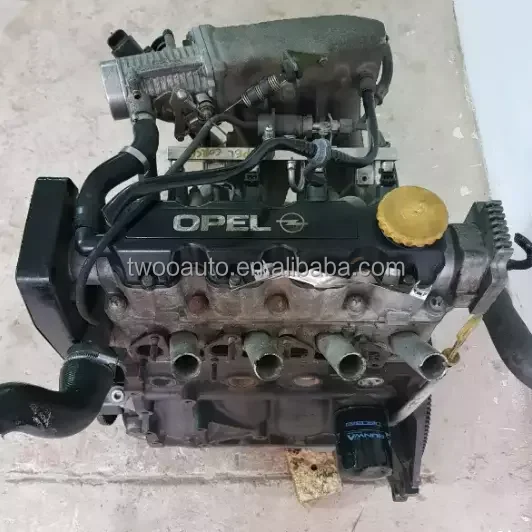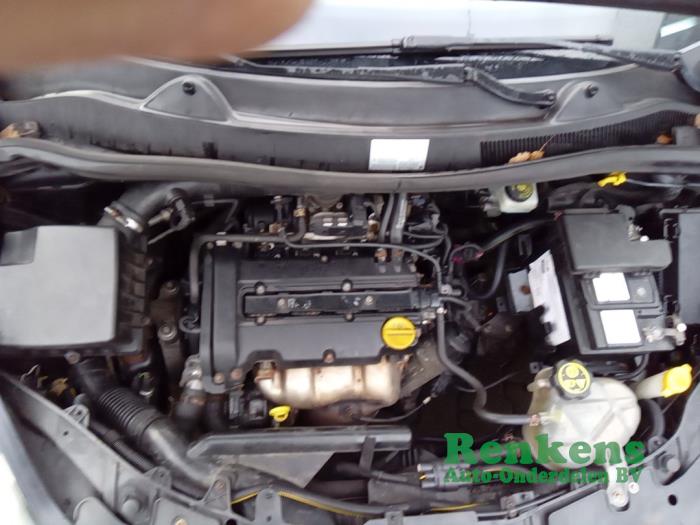Engine Buying Professional Tips on Picking the Right Engine for Your Details Requirements
Picking the appropriate engine for your details demands includes an intricate interplay of variables that surpass mere horse power numbers. From power outcome to fuel effectiveness, the decision-making process can be intimidating. Recognizing the subtleties of engine kinds, sizes, and their compatibility with your car is vital. However, there are experienced tips that can assist navigate this surface with confidence. By delving into the ins and outs of power versus effectiveness, evaluating gas ratings, and budgeting for long-lasting costs, one can absolutely enhance their engine selection.
Power Vs. Performance: Discovering the Equilibrium
When choosing an engine, it is important to strike an equilibrium between power and efficiency to meet your specific requirements effectively. Power describes the engine's ability to create power for propulsion, figuring out aspects like acceleration, pulling capacity, and general performance - Opel Corsa 1.4 Engine Price. On the other hand, performance associates to how well the engine uses gas to generate power, affecting factors such as fuel economy and environmental kindness
Accomplishing the appropriate balance in between power and efficiency is vital due to the fact that an engine that is too effective might consume extreme gas, bring about higher operating expense and unneeded strain on the setting. On the other hand, an engine that focuses on performance over power might cause slow efficiency, specifically sought after circumstances like lugging hefty loads or driving uphill.
To make an educated choice, consider elements such as your normal driving problems, the desired use the vehicle, and your individual preferences. By examining your needs and top priorities, you can select an engine that strikes the perfect equilibrium in between power and efficiency, guaranteeing ideal performance while reducing environmental effect and operating expenses.
Comprehending Engine Dimension and Type
To additionally fine-tune the choice process of an engine that strikes the ideal equilibrium in between power and effectiveness, it is vital to explore the intricacies of understanding engine dimension and kind. Engine dimension describes the overall volume of air and fuel that can be pressed via the engine cyndrical tubes. It is normally gauged in litres or cubic centimeters. Larger engine dimensions typically result in more power result however can likewise result in decreased gas performance. On the other hand, smaller engine dimensions are usually a lot more fuel-efficient but might compromise some power.
Common engine kinds include inline engines, V engines, and rotary engines, each with its distinct advantages and disadvantages. Recognizing the interplay between engine dimension and kind is important in picking an engine that straightens with your particular demands and priorities, whether it be power, effectiveness, or an equilibrium of both.

Consider Your Car's Demands
If you are looking for an engine for a durable vehicle that will certainly be used for towing, you will need an effective engine with high torque abilities. On the various other hand, if you are selecting an engine for a compact automobile primarily utilized for city travelling, fuel efficiency may be an extra essential factor to consider.
If you frequently drive in sloping or hilly areas, a durable engine with excellent climbing up power will be necessary. By straightening the engine requirements with your automobile's demands, you find more can ensure that your vehicle runs successfully and satisfies your performance assumptions.
Examining Fuel Performance Scores
Analyzing gas effectiveness ratings is an essential element of selecting the appropriate engine for your automobile, ensuring expense savings and environmental sustainability. Gas effectiveness ratings, typically gauged in miles per gallon (MPG) for gas engines or kilowatt-hours per 100 miles (kWh/100 miles) for electrical engines, indicate exactly how much a vehicle can take a trip on a particular quantity of fuel or electrical power. Higher MPG or reduced kWh/100 miles values symbolize more reliable engines, translating to minimized fuel costs and reduced carbon emissions.
When reviewing fuel performance ratings, consider your driving requirements and practices. If you commute long distances daily, an extremely additional resources fuel-efficient engine can cause significant cost savings over time. Additionally, contrast different engine alternatives within the same car course to identify the most cost-effective selection. Elements such as engine size, weight, the rules of aerodynamics, and crossbreed or electric abilities can all affect gas effectiveness.
Budgeting for Long-Term Expenses
Tactically preparing for lasting expenditures is vital when choosing an engine, ensuring financial sustainability over the car's lifespan. While the initial purchase price of an engine is a considerable aspect, it is vital to take into consideration the lasting prices related to upkeep, repair services, and gas usage. Choosing for a more fuel-efficient engine may have a higher ahead of time price but can cause substantial cost savings in time. Regular upkeep, such as oil adjustments, filter substitutes, and tune-ups, is necessary to maintain the engine running smoothly and efficiently, reducing the threat of costly repairs down the line.
Furthermore, looking into the accessibility and price of replacement components for the picked engine is important in spending more info here plan planning. Engines with conveniently available and cost effective components can substantially impact long-lasting upkeep costs. In addition, considering the engine's longevity and expected life expectancy can aid prevent unanticipated replacement expenses in the future. By carefully budgeting for these long-lasting expenditures and factoring them into the decision-making process, people can choose an engine that not just fulfills their immediate requirements yet also stays cost-efficient throughout its lifespan.
Final Thought
Finally, picking the appropriate engine for your specific needs needs stabilizing power and effectiveness, comprehending engine dimension and kind, considering your automobile's needs, evaluating fuel efficiency ratings, and budgeting for long-term costs. By carefully considering these factors, you can ensure that you choose an engine that meets your demands and gives ideal efficiency for your automobile.
To even more refine the option process of an engine that strikes the optimal equilibrium between power and efficiency, it is important to dive right into the complexities of understanding engine dimension and type. Engine dimension refers to the overall volume of air and gas that can be pushed via the engine cylinders. Common engine kinds include inline engines, V engines, and rotating engines, each with its special advantages and downsides. Understanding the interaction between engine dimension and type is vital in choosing an engine that aligns with your certain needs and top priorities, whether it be power, effectiveness, or an equilibrium of both.

Comments on “Revealing Opel Corsa 1.4 Engine Price Supplies: Your Source for Costs Car Components”